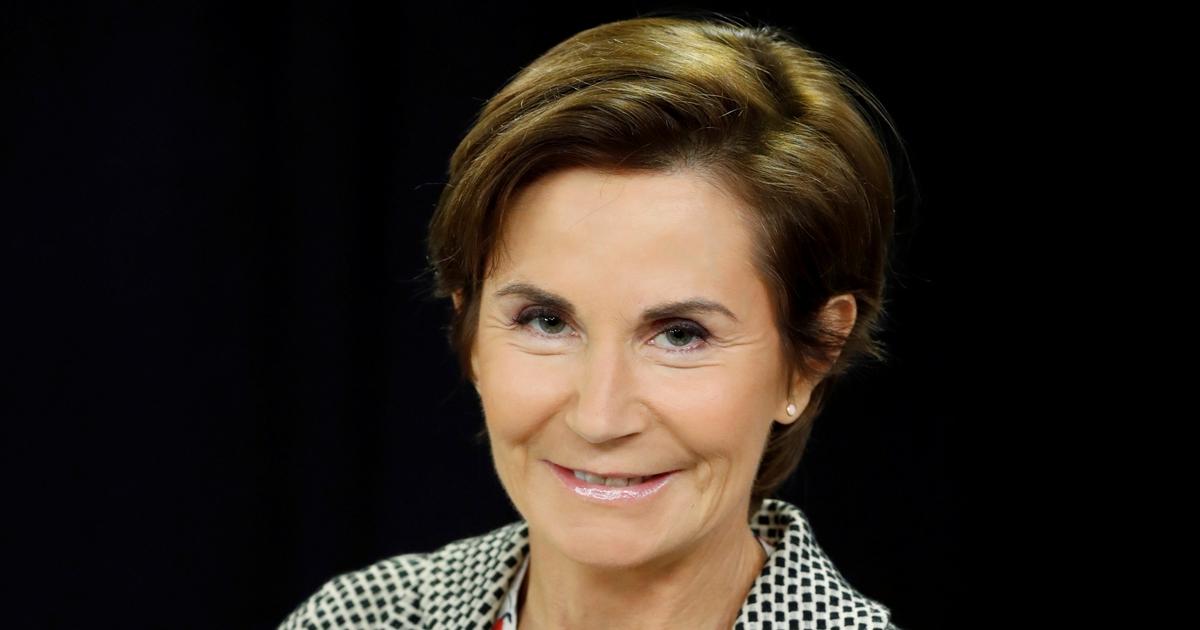In the late 1990s, British publisher Margaret Obank and her husband, Iraqi writer Samuel Shimon, founded a magazine specializing in modern Arabic literature. They wanted to correct "the marginalization" suffered by Arab authors and alleviate what was then only a "trickle of translations" published by those writers. And this despite the support that the Nobel Prize for Literature had given the language to the Egyptian novelist Naguib Mahfuz in 1988. More than two decades later, and after 67 edited numbers (with a periodicity of three annual numbers), Banipal, This is the name of the magazine, it has just made the leap to the Spanish-speaking world with the publication of a Spanish edition.
The number 1 of Banipal. Modern Arabic Literature Magazine , corresponding to "Spring 2020", has just left a printing press in England, although this has been due to logistical problems during the covid-19 pandemic, which has also caused a delay of months in its launch , and in the future it is intended that, in addition to being coordinated, it will also be printed in Spain. And a cover with works by the painter Hanoos Hanoos (Kufa, Iraq, 1958), a Spanish nationalized artist, resident in Madrid and doctor of Fine Arts from the Complutense University, welcomes from the cover the new publication, which opens this issue with an essay by the Jordanian novelist Kafa Al-Zou'bi.
Short stories by the Palestinian writer Mahmoud Shukair, the Iraqi Salima Salih, his compatriot Muhsin Al-Ramli or the Tunisian Rachida el-Charmi, among many other authors, make up a varied list of texts by writers from different cultures and backgrounds: from Lebanese-Canadian Rawi Hage to Dutch-Moroccan Abdelkader Benali. In addition to the essay and the narrative, the magazine also does not forget poetry, with special sections for the Omani Saif al-Rahbi or the Emirati Abdel Aziz Jassim. Of course, there is no shortage of reviews of new published books, although this time only of titles in English. Future issues will include those of works also translated into Spanish.
The name of the magazine, Banipal, serves as a tribute to Ashurbanipal (668-627 BC), the last great king of Assyria, who brought the empire to its greatest extent and its culture to its maximum splendor, with the creation of the Nineveh library as a highlight. And the British Museum in London attests to both, both with the magnificent bas-reliefs of its palaces at Nineveh and Nimrud with scenes of lion hunting or military campaigns on the one hand, and the 25,000 clay tablets in cuneiform script with stories about the Flood, the Creation or the epic of Gilgamesh that were rescued from the rubble of the Nineveh Palace (in the current Iraqi city of Mosul). And this trail is what the publication has been pursuing since 1998: the work of the magazine consists of translating, according to Obank's own explanation in the editorial that opens the issue, “works by contemporary authors from all corners of the Arab world, in raising the at the height of the literary debate in the Arab world and in making Arab literature accessible to the widest possible audience, placing its literary production in its proper place within universal literature ”.
In a number 0 published in the summer of 2019 but in digital version and with a very reduced distribution as a test, Obank explained that in these two decades he had been asked many times why the magazine was not published in other languages, and finally decided work on it to offer, with the Spanish version, “a large, new, open window that looks at the Arab soul and conscience, which offers the Spanish-speaking reader the opportunity to regularly taste the richness of the Arab literary scene, taking it out once more from the relative situation of isolation in which he finds himself ”.
To give rise to publication, Banipal has had to resort to a huge number of translators, who have translated the texts into Spanish. Jaafar Al Aluni, 30-year-old Syrian, translator, member of the magazine's editorial board and one of its coordinators for the Spanish edition, regrets that, “normally, only the most famous authors are translated, we are talking about Mahmud Darwish and two or three more. "And he explains the objectives of the publication:" The new magazine will be dedicated to the new generation of contemporary authors. We are going to present the new literary and cultural trends that are taking place in the Arab world. And above all, go to the unknown corners: focus on Yemeni literature or what is happening in Kuwait, in the Emirates ... they are almost unknown countries for the Hispanic world. ”
Al Aluni assures that the Spanish magazine will not limit itself to translating what the English edition publishes, which has become a reference in these two decades, but will have its own entity: “There will always be differences, it will depend on the needs and interests we have in Spain ”.
Nor are they closed to authors who have developed their careers on horseback from the western world: "Our idea is to translate everything from Arabic, however," he explains, "in this first issue there are authors who are of Arab origin but live in France or Germany and They carry out their literary activity in another language, but they write about Arab affairs, about Arab culture, about Arab identity ... even though they have written in French, as is the case with Amin Maalouf. In those cases we try to translate it from another language, but our main objective is Arabic. ”
The expert assures that the level of translation is very high, since they have contacted the most prestigious Arabists, with award-winning translators, with professors from the best universities ... And perhaps focusing on these unknown authors will serve to publishers pay attention to them and are encouraged to translate more works by writers ignored here who are already recognized and translated in other countries. And he mentions as an example the Syrian Khalil Sweileh (with a fragment in Banipal from his novel The repentance to the test ), the Emirati poet Abdel Aziz Jassim, or Samuel Shimon himself, who has not won several awards and has not been translated into Spanish yet (also with a fragment in the magazine of his novel An Iraqi in Paris ).
Jaafar Al Aluni also wants to highlight that the magazine is very aware of the gender issue, so there is a good representation of authors. And perhaps that is why the first issue of Banipal in Spanish opens with the text of Kafa al-Zou'bi (1965). An interesting literary testimony in which the author relates the problem in her life of being one of the five daughters of poor and illiterate parents with only one male offspring. "The only decent future was already written and there was no other hinting at a girl's horizon: getting a husband to protect her," explains the Jordanian author. And the prayers of her parents were always aimed at the husband "being wealthy, compassionate and loving." In this vital essay, Al-Zou'bi talks about how her life turned upside down when a university scholarship transformed her life and led her to study Civil Engineering in Moscow, where she discovered the greats of Russian literature to end up writing six of her own novels. (one in Russian and the rest in Arabic). Works that until now Spanish-speaking readers are unaware of but which, thanks to a magazine named after the mythical Assyrian monarch, may in the future be available in Spanish on the shelves of bookstores and libraries.





/cloudfront-eu-central-1.images.arcpublishing.com/prisa/TY47FSPP2RB4BEVHHZRVRO4QLY.jpg)

/cloudfront-eu-central-1.images.arcpublishing.com/prisa/MRCVFTDVBNHVFBKXS3VWGODRAE.jpg)

